
Happy birthday Lísta Lagarde! This month, the “Lagarde list” turns five. If it was a child it would soon start to shed its milk teeth. The question is whether they will be replaced by adult teeth and how much bite they will have.
In October 2010, France turned over to the Greek authorities electronic records of around 2,000 Greek account holders of HSBC Private Bank in Geneva, obtained from a former employee of the bank. The spreadsheet became known in Greece as the Lísta Lagarde, after the then French Finance Minister (now head of the IMF) Christine Lagarde, who handed over the information. The list was an extract from the so-called “Swiss leaks”, a data dump from the bank’s internal database, consisting of the account details of over 100,000 customers from across the world, which Hervé Falciani, a computer technician at HSBC made available to governments worldwide with the stated aim of helping to combat tax evasion (Swiss justice takes a dimmer view, and has charged Falciani with data theft, while it has been suggested that he was motivated by financial gain).
Earlier this week, an update was presented on Greece’s progress investigating the contents of the list. In five years, fewer than 1 in 10 of the account-holders on the list have been subjected to a full tax audit, and investigations have been initiated on fewer than a quarter. The tax revenues from this exercise so far total a little over €80 million. In contrast, we are told that Spain’s list yielded €300 million to their treasury in taxes and fines, France brought in €250 million and the UK raised €180 million.
The delay in investigating the Lísta is not surprising, but perhaps not entirely for the reasons that are commonly implied. Press reports and political pronouncements tend to present a maximalist interpretation, leading to inflated expectations. This interpretation follows a certain logic. First, all account holders on the list are at the very least tax cheats, and potentially criminals and money-launderers too. Second, any delay in bringing them to justice is purely down to political interference. Finally, if the list were investigated, it would not only bring significant benefits to the public purse, but also, by punishing the “fat cats” it would create a virtuous circle of tax compliance among the general public. Every link in this logical chain is weak, as we will show. This doesn’t mean the list shouldn’t be investigated for all its worth, merely that we should be realistic about the benefits it will bring and skeptical of anyone who makes unrealistic claims.
Let’s start with the assumption that everyone on the list is guilty of tax evasion and/or crime. Although the lists were not released publicly, leaks to the press (meta-leaks if you like) have tended to focus on the named customers that fit this interpretation. For example, the International Consortium of Investigative Journalists recently published a cherry-picked list of public figures which included arms dealers, government ministers and celebrities. In Greece, a tabloid leaked the entire Greek list in 2012, and while anyone rich in time and patience (and certainly professional journalists) could comb through it, the names extracted for special attention included most of Greece’s business families and a smattering of politicians and celebrities, again confirming popular suspicions that the rules that apply to the common man are flouted en masse by the usual suspects. In the post-2008 global political climate it has not been in anyone’s interest, whatever their political persuasion, to present a nuanced picture. And of course, this is not all about the money, but ostensibly about the principles of tax justice and equality before the law. It is also, not coincidentally, about gaining the moral ground and amassing political capital.
However, the reality is not as black and white than the populist narrative suggests. Banking abroad, even in Switzerland, is not itself illegal. Free movement of capital is one of the “four freedoms” of the European Single Market which also applies to third countries like Switzerland, so anyone with a foreign bank account is not automatically a tax dodger or a criminal. Therefore saying that someone is “on the Lista Lagarde”, while factual, is not prima facie evidence that they are a lamógio. It is legitimate to suspect that many customers of HSBC were there to take advantage of Swiss banking secrecy to shield their money from their home authorities; the Swiss leaks records include notes of conversations in which customers voice their concerns about the risk of detection and receive assurances to the contrary from the bank’s relationship managers. It has been demonstrated in a number of investigations that HSBC courted clients worldwide with the promise of tax evasion, applied lax controls, and accepted as clients known criminals engaged in money laundering. However, our justifiable suspicion is not bankable without proper auditing of individual accounts, which is (surprise, surprise) very complex and time consuming, especially since tax evasion schemes are designed to be opaque. The same populist gloss is applied with even less justification to the list produced by the Bank of Greece of some 54,000 individuals who transferred a total of €22 billion out of Greece in recent years. There may be perfectly legitimate reasons why someone might wish to bank abroad, including international business dealings, or uncertainty over their home country’s political and financial stability. The onus is on the authorities to demonstrate that there is anything more to it.
Now, let’s look at the premise that lack of political will is the only thing that stands as an obstacle to using the list. What actually happened in the Greek case? It seems perfectly clear that for the first two years that the Greek government was in possession of the Lísta Lagarde it prevaricated, and may even have obstructed the investigation, despite the pressure to raise public revenues. Subsequent investigations came in dribs and drabs and were selective. For example, the first “cut” chosen for investigation was limited to a handful of politicians, whereas now the focus has shifted to public contractors and media owners. No action was taken between 2010 and 2012. In 2013, 258 audits were initiated and only 3 concluded. In 2014, 143 investigations commenced and 95 concluded. Finally, in 2015, the rate slowed again and only 80 investigations were initiated and 38 concluded in the year to date.
It is also instructive to look at how matters proceeded when there was a strong political motive to proceed with an investigation. The Greek Finance Minister who received the list from Christine Lagarde was George Papakonstantinou, then serving in the PASOK government of George Papandreou. By his account, he passed the information on to Greece’s Financial and Economic Crime Unit (SDOE) for investigation, shortly before being moved to the Energy and Environment post, where he stayed until he lost his seat in the May 2012 elections. After the elections, he was accused of removing the names of two relatives from the Lísta Lagarde and faced a parliamentary investigation which effectively ended his political career. Earlier this year he was tried by a Special Court for breach of faith in his ministerial post and tampering with the list. Now, you would think at this point that the prosecution case against a high profile politician could count on incontrovertible evidence of the damage caused by his alleged actions. Far from it, as it turns out. When the time came to present the evidence of the investigation into Papakonstantinou’s cousins’ finances, the official called as a witness stated to the court that while they had been able to identify potential tax liabilities totalling just short of €8 million based on the Lísta, they had not had time to offer the account holders the opportunity to counter the results, meaning that the final amounts could prove significantly smaller. The presiding judge remarked that, “You have a problem of technical infrastructure and personnel. Imagine if we were to wait for all the files to be examined!” The witness responded, “We require 15 years’ worth of evidence. We do not have enough specialised staff.” In the event Papakonstantinou was cleared of the breach of faith charge because the court was not able to establish the damage to the public purse (he was convicted of a misdemeanor for tampering and continues to protest his innocence on all counts). So, even when there was a high profile political scalp at stake, the system failed.
Finally, let’s look at the numbers. To recap, Spain’s cut of the Falciani list yielded €300 million to their treasury in taxes and fines; these were yielded from total deposits of $2.3 billion held by a total 2,694 HSBC customers (note, different sources give the amounts in different currencies). France brought in €250 million; but that was from $12.5 billion in 9,187 customers. The UK brought in €180 million from $21.7 billions’ worth of deposits spread across 8,844 customers. All somewhat underwhelming. Then consider that Greek customer deposits on the list total $2.7 billion. across 2,148 customers. If the Greek authorities’ investigations are as thorough and the depositors’ evasion rate is found to be as high, we could hope for a yield similar to Spain’s, a one-off gain to the public finances of half a billion euros on the outside (the €80 million raised so far from the “big fish” represents a fairly impressive hit rate, but will probably tail off as we go down the list); if the parameters are closer to the UK or France, it could be almost an order of magnitude smaller. These amounts would be welcome, but they are a drop in the bucket in the context of a country that has just agreed to an €86 billion bailout, and has budgeted €6.4 billion in additional austerity measures over the next couple of years, but where corruption and petty bureaucracy cost around €33 billion annually.
The newly re-elected Syriza/ANEL government has stated that will bottom out the investigation of the Lista Lagarde, even seeking to extend he statute of limitations beyond its natural expiration at the end of 2015. This seems like an unrealistic goal, if you combine it with their plans to crack down on tax evasion, streamline the tax collection system and tax overseas assets. There is no disputing that tax collection apparatus in Greece needs reforming. At present, the average taxpayer’s experience consists of hours of queueing in chaotic local tax offices, and a rickety electronic filing system that fully exposes the user to the messy back-end of the Greek tax code with no concessions to usability. The main qualification for tax inspectors seems to be the ability to take abuse from enraged mobs at country fairs, rather than the technical sophistication required to deal with digital audit trails and complex tax structures. However, fast-track reforms currently underway mean that experienced staff for tax audits are being obtained by transfers from SDOE at the expense of financial crime investigation. So, on current evidence the authorities’ capacity is not improved, and may even be weakened.
What about political will? Again, going by the numbers the current government has talked big but delivered very little since it came to power in January 2015. A skeptic might suggest that even though the political balance has shifted radically from previous years, there is a certain logic at work which dampens the sense of urgency. Much like the innuendo of “diaploki”, this logic says, the Lísta Lagarde is much more useful suspended like a sword of Damocles over the heads of political opponents or potential sponsors than it would be exhausted through the proper channels, especially if that is likely to prove anticlimactic. Where’s the rush to investigate when you can make political hay out of the mere threat of investigation? We, as the original political operator would say, couldn’t possibly comment. No doubt, the surprise element of the Lísta has been diminished considerably by the publication of the full list of names three years ago, which has presumably given everyone concerned the opportunity to prepare their defence. There are other lists as well, including the 97 Greek account holders with €22.3 million in deposits at HSBC’s Jersey branch and the Luxleaks list of Luxembourg-domiciled companies with preferential tax deals, which implicate a number of Greek businesses.
Beyond that, there is the “ordinary” tax evasion and the deeply embedded informal economy in which the majority of Greeks find themselves complicit whether they like it or not. What then of the virtuous circle? It is hard to know what effect (if any) pursuing these high profile cases could have on the ordinary taxpayer’s attitude. Given that most Greeks are already exhausted by the tax increases of the past five years and deeply cynical about the workings of government, our guess is that much like the anticipated revenues, the expectation of an uplift in general tax compliance is also inflated.
Maybe after a lot of hard work the tooth fairy will pay a visit and leave a few welcome pennies, but let’s not kid ourselves that this gets to the root of the problem.
Image from cnn.com
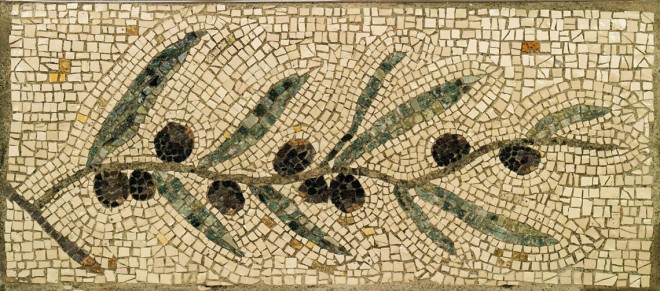






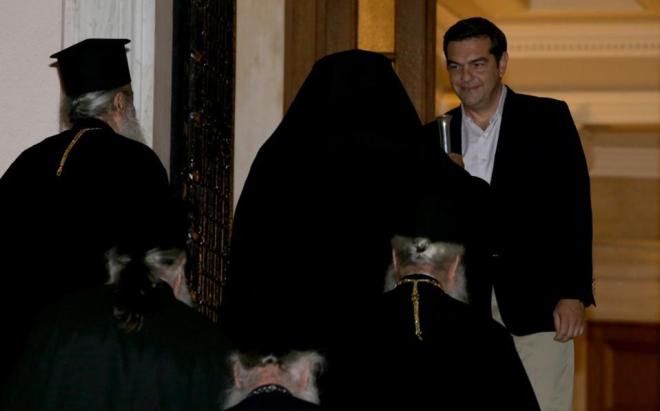
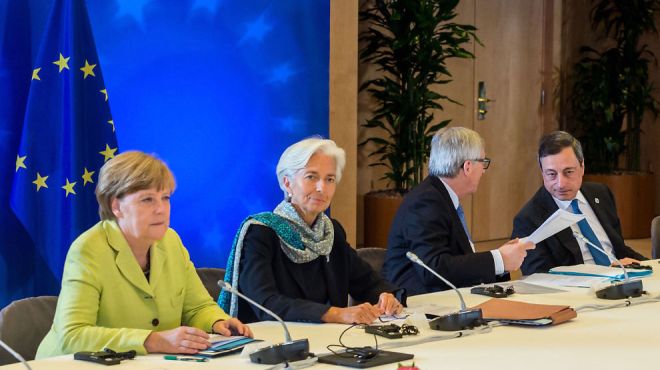
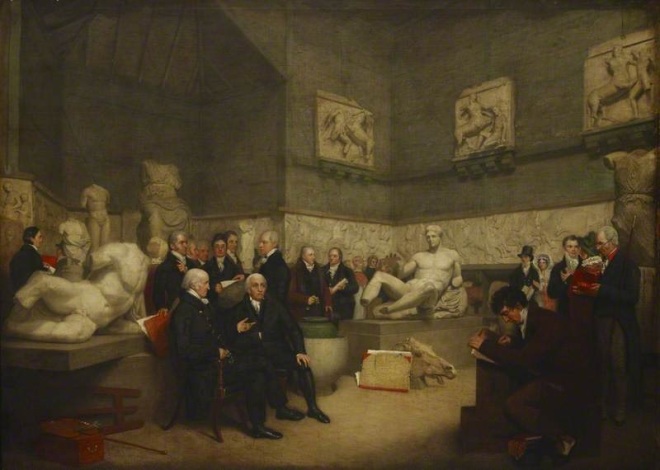

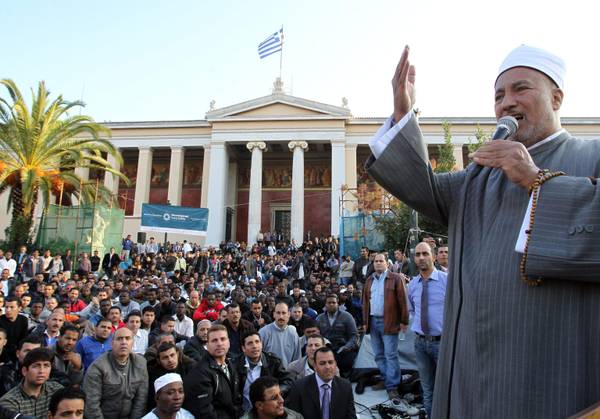







 Watching the current Greek government approach one year in office, I am frequently reminded of a tale I once heard about the customs of a faraway land. This is the tale as it was recounted to our regular contributor
Watching the current Greek government approach one year in office, I am frequently reminded of a tale I once heard about the customs of a faraway land. This is the tale as it was recounted to our regular contributor 

